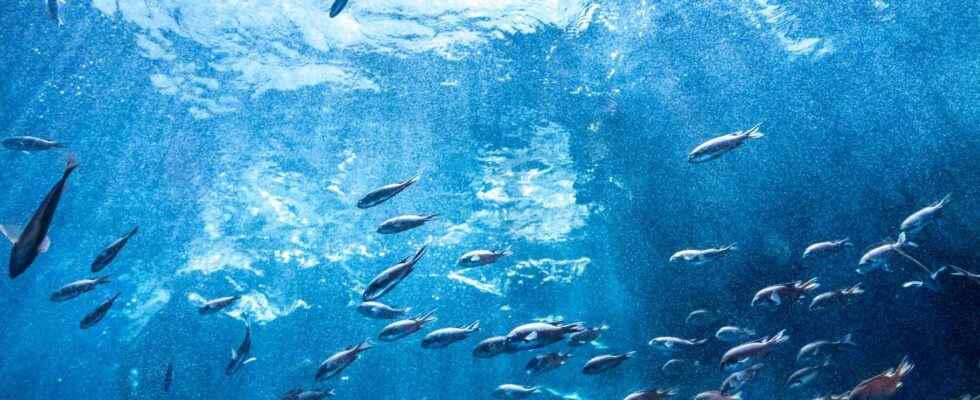This decade is the decade of the oceans with the One Ocean summit which is held in Brest from February 9 to 11, 2022. Its objective is to mobilize interested actors from all over the world to raise awareness of the degradation of the ocean and to take preventive and supportive measures.
You will also be interested
[EN VIDÉO] The worrying warming of the oceans In 2020, the oceans absorbed the equivalent of 20 sextillion joules. Not since 1955 has the temperature of the ocean been so high.
This decade will experience a great movement for the protection of the ocean thanks to the one ocean summit, the first of its kind. This Wednesday, February 9 begins in Brest this three-day event organized with the support of the United Nations, one of the objectives of which is to raise awareness of the ocean degradation and its ecosystems. To do this, more than 30 workshops, forums, meetings are organized as well as a gathering of some twenty heads of state and government, 500 personalities representing more than 65 countries, and more than 100,000 participants are expected online. .
The role of the oceans and our shortcomings
The oceans are of great importance because they provide many services: they produce oxygen, regulate the climate, mitigate global warmingatmosphere and are filled with impressive biological riches. But, with the climate changethe waters warm up, lose their oxygen and acidify compromising their role as climate regulators. It is therefore essential to care for and maintain the ocean systems in a good state so that the Earth can be well.
However, scientists are very lacking in knowledge about this mysterious blue expanse covering three quarters of the Planet: the cumulative impacts of climate change have not yet been assessed, only 5% of the ocean floor total have been mapped, of which only 1% in high resolution ; millions of species still remain unknown and much more. Thus, the main challenges for the current decade 2021-2030 which will be addressed during the Brest summit are the protection, the management of marine spaces and marine resources, the greening of human activities at sea and above all the deepening of knowledge about the oceans.
In addition, raising the awareness of the international community and raising the level of collective ambition will allow an ecological awareness to understand the role that the oceans play in mitigating climate change, the interest of protecting marine ecosystems and biological, the need to preserve resources and fight against pollution plastic.
The scientific community mobilized but on its guard
This movement is gaining considerable momentum with the mobilization of more than 2,000 CNRS researchers working on ocean systems in around fifty laboratories. This organization also shows a interdisciplinarity remarkable in bringing together ocean and climate sciences, philosophy, sociology, biodiversity, maritime law and more.
However, part of the scientific community is on its guard regarding the discovery of the deep seabed, 75% of which is still unknown. Their exploration arouses curiosity and their knowledge would make it possible to find solutions in our emergency context. However, some scientists fear that these explorations aim to become mining operations and that the economy takes precedence over the protection of ecosystems. They fear that the seabed will be severely damaged before all the mysteries of these abysses are understood.
Interested in what you just read?
